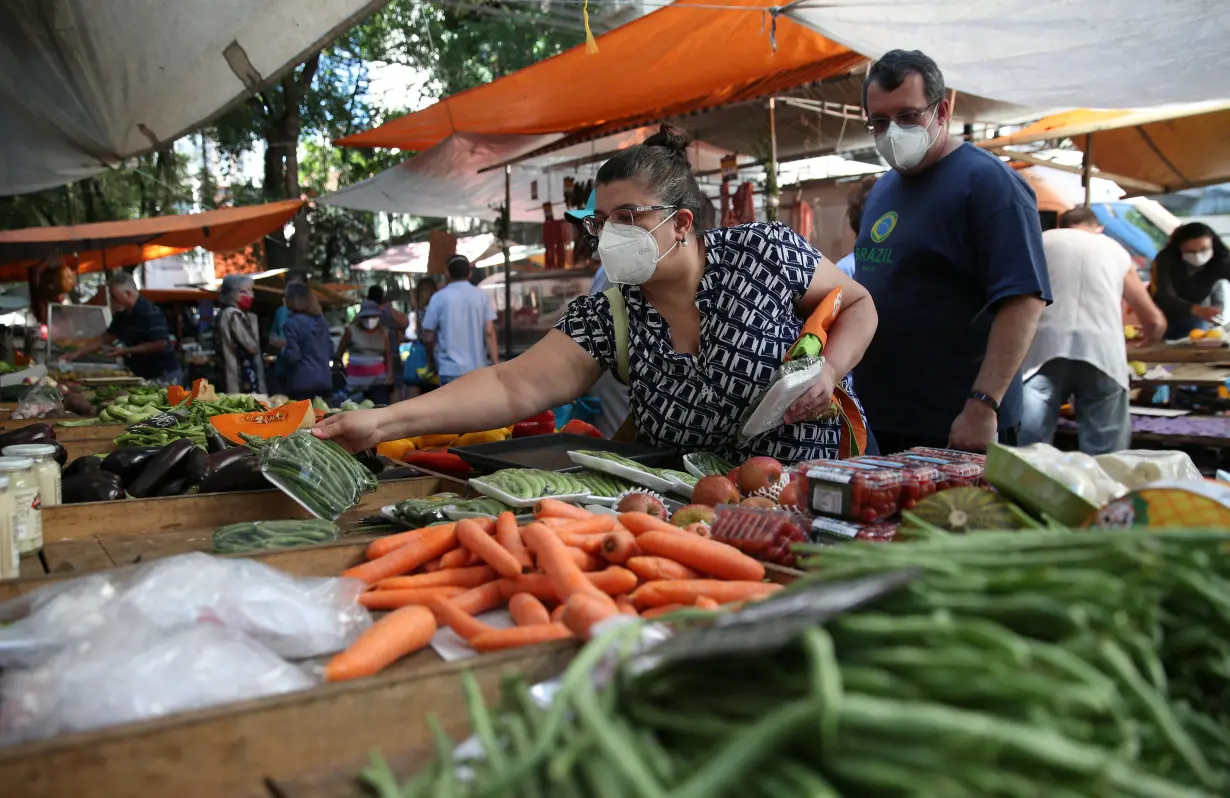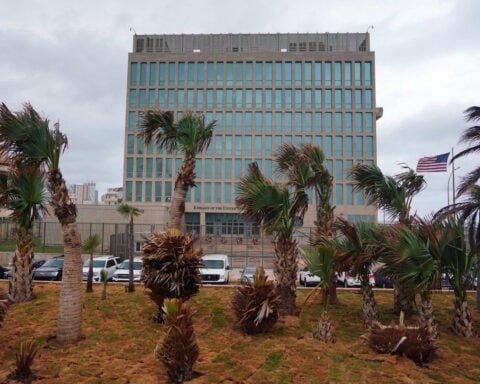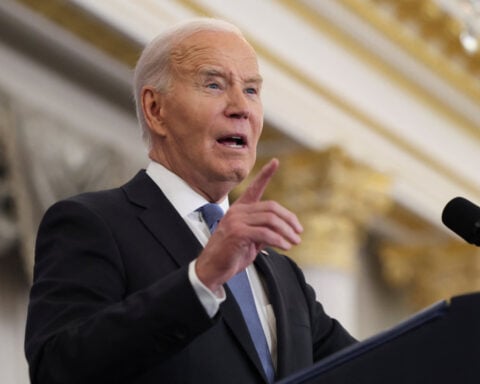SAO PAULO (Reuters) -Consumer prices in Brazil rose more than expected in the month to mid-July on higher transportation costs, official data showed on Thursday, likely sealing the deal for the central bank to keep interest rates on hold at a policy meeting next week.
Prices as measured by the IPCA-15 index were up 0.30% in the period, statistics agency IBGE said, slowing from 0.39% in the previous month but overshooting the 0.23% increase forecast of economists polled by Reuters.
Seven out of the nine groups surveyed by IBGE posted price increases in the period, the agency said, with transportation being the biggest influence on the back of higher airfare and fuel costs.
In the 12 months to mid-July, inflation in Latin America's largest economy stood at 4.45%, up from 4.06% the month before and exceeding the 4.38% expected by economists in the Reuters poll.
Jason Tuvey, an economist at Capital Economics, said that coming alongside fiscal concerns and recent weakness of the Brazilian real, the latest inflation data backed a view that the central bank will not resume rate cuts this year.
"And possibly even longer," he added in a note to clients. "What will worry (rate-setting committee) Copom is the strength of services inflation, which appears to have risen last month."
Brazil's central bank targets inflation at 3%, plus or minus 1.5 percentage points. The monetary authority last month unanimously halted a rate-cutting cycle, citing higher inflation expectations and fiscal struggles.
The next decision is scheduled for July 31 and markets believe the bank will maintain its key rate at 10.50%.
Rafaela Vitoria, chief economist at lender Inter, said that real interest rates above 6% have not been enough for inflation to converge faster to the bank's target amid fiscal expansion and a strong labor market.
"Monetary policy remains at a very restrictive level and this is not yet a scenario for raising interest rates," she said. "But we will have high rates for longer, or even the discussion of a new hike if fiscal expansion continues in 2025."
(Reporting by Gabriel Araujo; Editing by Kirsten Donovan and Bernadette Baum)

 A look at the events that led up to the detention of South Korean President Yoon Suk Yeol
A look at the events that led up to the detention of South Korean President Yoon Suk Yeol
 The long struggle to establish Martin Luther King Jr. Day
The long struggle to establish Martin Luther King Jr. Day
 Two private lunar landers head toward the moon in a roundabout journey
Two private lunar landers head toward the moon in a roundabout journey
 Trump's Greenland bid stirs debate in China about what to do with Taiwan
Trump's Greenland bid stirs debate in China about what to do with Taiwan
 TikTok preparing for U.S. shut-off on Sunday, The Information reports
TikTok preparing for U.S. shut-off on Sunday, The Information reports
 Japan's Makino Milling requests changes to unsolicited bid from Nidec
Japan's Makino Milling requests changes to unsolicited bid from Nidec
 As Los Angeles burns, Hollywood's Oscar season turns into a pledge drive
As Los Angeles burns, Hollywood's Oscar season turns into a pledge drive
 As fires ravage Los Angeles, Tiger Woods isn't sure what will happen with Riviera tournament
As fires ravage Los Angeles, Tiger Woods isn't sure what will happen with Riviera tournament
 Antetokounmpo gets 50th career triple-double as Bucks win 130-115 to end Kings' 7-game win streak
Antetokounmpo gets 50th career triple-double as Bucks win 130-115 to end Kings' 7-game win streak








